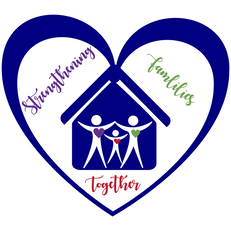Every year children in Cambridge spend 1,080 hours in the public school system. Children who attend our youth programs year-round spend over 1,400 hours at CCC. Many of our children spend more awake hours with their Lead Teacher at CCC than any other adult in their lives. We recognize this huge responsibility and we are working to maximize the positive impact we have on the children, youth, and families enrolled in our programs.
The Strengthening Families Together Project (SFTP) focuses on four key components:
The Strengthening Families Together Project (SFTP) focuses on four key components:
- Support for Children: Children who demonstrate high-level mental health risks are identified by our Social Worker to receive additional support and/or therapeutic treatment using evidence-based practice administered by trained and licensed professionals (with caregiver consent). These services take place at CCC during regular program hours. Therefore, services are provided in a setting that’s familiar to the child at a time and location that’s convenient for their caregivers.
- Support for Families: We work with caregivers to co-create plans to best support children in their home environments, building on the positive impact of services provided during program hours. Additionally, caregivers who could benefit from additional support and/or therapeutic treatment themselves are able to receive those services at CCC while their children are being cared for in our program.
- Professional Development: Lead Teachers play a critical role in the social-emotional development of the children we serve. We partner with the Harvard University's PEAR Institute to provide regular professional development with experts in the field that increase our Lead Teachers’ capacity to best support children with mental and behavioral health risks. We infuse trauma-informed education, socioemotional development, and cultural competency at all levels of service delivery.
- Systems Change: We plan to use the success of SFTP to influence systems change in the way mental health services are delivered, particularly in communities of color. This will be done by gathering data, publishing a report, and presenting at conferences across the country in hopes that other communities will adopt this innovative service delivery model.

